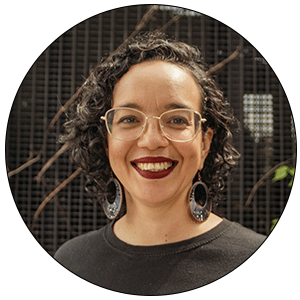

The divine exodus:
When God became a migrant
January 26, 2025
Created by: Margarita Orozco, Conectar Global

The losses of migration
What is an immigrant's greatest loss? Some would say the security of their home, others their family and friends, their economic stability, or even their culture and language. But what happens when migration isn't voluntary? The losses are magnified.
With approximately 281 million international migrants worldwide, and 117 million displaced by conflict and violence, migration is a pressing reality.*
It's not a new phenomenon. From the beginning, humanity has migrated, voluntarily or involuntarily. The Bible is full of examples: Adam and Eve expelled from Eden, Cain as a stranger, Noah and his family, the builders of the Tower of Babel, and many more.
Each one experienced the sadness of leaving their homeland, mixed with the excitement of something new. But none of these examples compares to Jesus's migration.
Jesus, the Divine Migrant
John 1:1 tells us:
«In the beginning was the Word, and the Word was with God, and the Word was God.»
John declares Jesus' divinity, his preexistence with God. Then, John 1:14 reveals something even more surprising:
«And the Word became flesh and dwelt among us. And we have seen his glory, the glory of the only Son from the Father, full of grace and truth.»
God himself migrated to Earth, became human, and lived among us. But despite being God incarnate, full of grace and truth, he was rejected: "He came to his own, and his own did not receive him" (John 1:11).
As an immigrant, Jesus understands the losses of all migrants. He knows the uprooting, the loneliness, and the rejection.
Jesus, being God, humbled himself and became man (Philippians 2:8), an act of "migration" that is part of the plan of salvation. And as a consequence of this, we are called to be agents of reconciliation, breaking down the walls of separation through the Gospel.
In this new family, there are no longer locals and foreigners, nor powerful and marginalized. We are all part of the pilgrim community! We journey together toward our true city (Philippians 3:20).
A call to action:
How can we be hospitable and welcoming to migrants?
- Welcome newly arrived migrants to your community.
- Offer them practical help, such as language assistance, transportation, or information about local resources.
- Invite them to participate in community events and social activities.
- Show empathy and understanding toward their experiences and challenges.
Let us pray for migrants:
Lord Jesus, we turn to you, our High Priest, who understands our needs because you became human. We pray for our migrant brothers and sisters. May your presence be their safe home, may they feel your acceptance and recover their honor.
We ask that your Church be a home for the weak and the strangers. May we, pilgrims on this earth, welcome migrants into our communities with love and service.
In the name of Jesus, amen.
*According to a 2024 report from the IOM International Organization for Migration
When Jesus was a refugee…

Jesus, the migrant from heaven…

Access free courses and mentors online, from anywhere and in complete anonymity.

Register in a safe way
anonymous.

Enter your course at no cost.

Interact with our mentors.
Testimonials
“I think it is a course with very valuable and helpful information for those of us who often suffer from anxiety in moments of insecurity and fear.”
“The course is very good, it gives us the best way to overcome moments of anxiety, since even knowing the Word it happens to us that we are vulnerable, we feel fear and we get blocked, we get confused and we do not go first of all to our Lord and God Almighty".
“Excellent course. Addressing the issue of anxiety from the love and protection of God fills me with confidence, knowing that He does not abandon me and that the path He has prepared for me is beautiful and perfect.”

Student: Martha Rodríguez
Puerto Rico

Student: Norma González
USA

Student: Carlos Olarte
Colombia





0 Comments